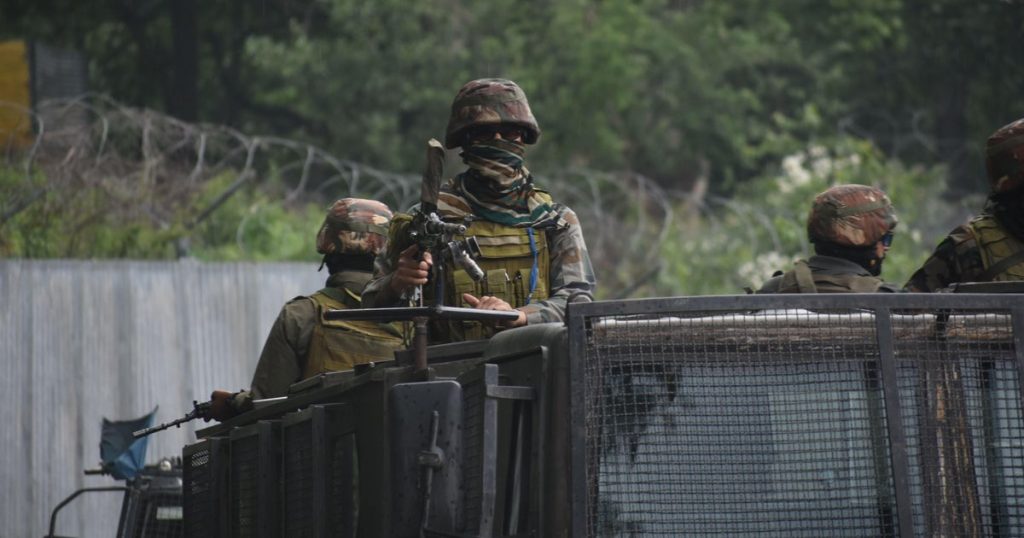In April 2025, a deadly terrorist attack occurred in the scenic Pahalgam area of Indian-administered Kashmir, reigniting tensions between India and Pakistan. This escalation has led both countries to exchange missile strikes and drone attacks, prompting international concern about a potential conflict. The longstanding rivalry, deeply rooted in historical disputes over territorial claims, has reached yet another critical juncture as military actions intensify.
| Article Subheadings |
|---|
| 1) Overview of Recent Clashes |
| 2) Historical Context of the Kashmir Conflict |
| 3) Previous Wars Between India and Pakistan |
| 4) The Impact of Autonomy Revocation |
| 5) International Reactions and Concerns |
Overview of Recent Clashes
The recent escalation in hostilities between India and Pakistan took a dramatic turn following a terrorist attack in Pahalgam, Jammu and Kashmir, that resulted in multiple casualties. Since the attack, which targeted Indian tourists, both nations have engaged in reciprocal missile strikes, with India claiming to have eliminated critical terrorist bases in Pakistan. Tensions have surged, leading to the death of civilians and heightened military readiness along the border.
On May 1, 2025, air raid sirens echoed throughout Indian cities near the Pakistan border, and authorities urged citizens to stay indoors. A woman was reported dead, with several others injured due to cross-border fire from Pakistan in Uri. Major airports and the capital city of Delhi were placed on high alert, reflecting the precarious nature of the situation. On the other side, Pakistani officials accused India of launching an attack that claimed over 36 lives, labeling it an “act of war.”
Historical Context of the Kashmir Conflict
The Kashmir conflict is deeply rooted in the partition of India in 1947, a period marked by violent communal strife. The princely state of Kashmir, ruled by a Hindu Maharaja, chose to remain independent during the partition. However, an invasion by tribesmen from Pakistan prompted the Maharaja to seek military assistance from India, which led to India’s military intervention and Kashmir becoming a part of India.
Following the intervention, Kashmir was effectively divided, but both India and Pakistan maintain claims over the entire region. The United Nations was called in to mediate, but it could not resolve the conflicts regarding Kashmir’s status, leading to entrenched rivalries and frequent violence over the decades.
Previous Wars Between India and Pakistan
The Kashmir dispute has resulted in three major wars between India and Pakistan, with the first war occurring shortly after partition in 1947. The unresolved status of Kashmir led to a second war in 1965 and another brief conflict in 1999, known as the Kargil War, where both nations came perilously close to nuclear confrontation.
Each of these conflicts has traumatized the populations on both sides, with heavy casualties and longstanding animosities. The United Nations has attempted to mediate through various resolutions, calling for referendums among the Kashmiri population, but these efforts have largely failed to yield a lasting solution.
The Impact of Autonomy Revocation
In 2019, India’s government under Prime Minister Narendra Modi revoked the special autonomous status of Kashmir, a move that sparked outrage in Pakistan and among many Kashmiris. This revocation annulled Article 370 of the Indian Constitution, which granted Kashmir certain privileges and self-governance.
Following this action, heavy military presence was established in the region, and communications were severed to quell dissent. Critically, the image of Kashmir shifted from a volatile hotbed of militancy into a focus for tourism, with government claims that normalcy was returning. However, the recent terrorist attack and the corresponding military actions have severely undermined these assertions, plunging the region back into chaos.
International Reactions and Concerns
World leaders and international organizations have expressed alarm over the rising tensions between India and Pakistan. The potential for a regional conflict with global implications is heightened given both nations’ nuclear capabilities. Diplomatic responses have included calls for de-escalation, with several countries urging both sides to engage in dialogue and prevent further violence.
The United Nations has reiterated its commitment to resolving the Kashmir issue, emphasizing dialogue as the primary pathway for peace. Countries with vested interests in South Asia have engaged in diplomatic efforts, seeking to mitigate the risks of a larger military confrontation.
| No. | Key Points |
|---|---|
| 1 | A terrorist attack in Pahalgam escalated tensions between India and Pakistan. |
| 2 | Both nations have engaged in missile strikes, raising fears of a larger conflict. |
| 3 | Historically, Kashmir has been a long-standing territorial dispute between the two countries. |
| 4 | The revocation of Kashmir’s autonomy in 2019 remains a significant factor in current tensions. |
| 5 | International reactions emphasize the need for dialogue to avoid escalation of conflict. |
Summary
The resurgence of conflict following the April 2025 terrorist attack has reinvigorated fears of war between India and Pakistan. The historical grievances surrounding Kashmir continue to fuel animosity, and recent military exchanges indicate a dangerous turn in relations. The potential fallout from any escalation could affect not only the regional landscape but also international stability.
Frequently Asked Questions
Question: What triggered the recent clashes between India and Pakistan?
The clashes were triggered by a deadly terrorist attack in April 2025 in **Pahalgam**, which led to retaliatory strikes from both nations.
Question: How has the revocation of Kashmir’s autonomy affected the conflict?
The revocation of autonomy in 2019 led to increased military presence and curbed civil liberties in Kashmir, contributing to ongoing tensions and resentment.
Question: What are the international community’s concerns regarding the Kashmir conflict?
The international community is concerned about the risk of a nuclear conflict between India and Pakistan and the potential for wider regional instability.
